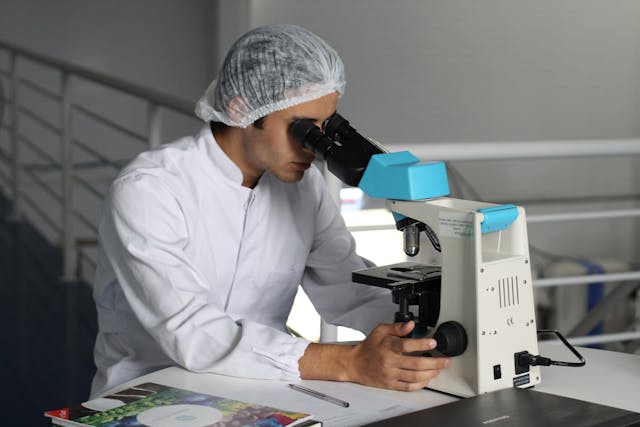
Risk Of Cancer
Cancer remains one of the leading causes of death worldwide, and while genetics and environmental factors play a significant role, there are several preventive measures you can take to lower your risk.
Focusing on lifestyle changes and early detection can significantly contribute to reducing your chances of developing cancer. Here, we will discuss evidence-based strategies to help you prevent risk of cancer and lead a healthier life.
Embrace a Healthy Diet
A balanced diet rich in fruits, vegetables, whole grains, and lean proteins can play a pivotal role in cancer prevention. Certain foods contain nutrients and antioxidants that have been linked to a reduced risk of cancer:
- Fruits and Vegetables: These are packed with vitamins, minerals, and antioxidants like vitamins A, C, and E, which help combat free radicals in the body. Aim to include a variety of colorful fruits and vegetables in your diet to benefit from a range of nutrients.
- Whole Grains: Whole grains such as oats, quinoa, and brown rice are high in fiber, which aids in digestion and helps prevent colon cancer. Fiber also helps to regulate blood sugar levels, which can lower the risk of obesity—a risk factor for many types of cancer.
- Lean Proteins: Opt for lean protein sources like chicken, fish, and legumes. Avoid processed meats, as studies have shown a link between high consumption of processed meats and an increased risk of certain cancers, particularly colorectal cancer.
- Healthy Fats: Include sources of omega-3 fatty acids, such as salmon, flaxseeds, and walnuts. These healthy fats help reduce inflammation, which is linked to cancer development.
Maintain a Healthy Weight
Obesity is a significant risk factor for many types of cancer, including breast, prostate, colon, and kidney cancer. Maintaining a healthy weight through a balanced diet and regular physical activity can help reduce your risk.
- Stay Active: Aim for at least 150 minutes of moderate exercise or 75 minutes of vigorous exercise each week. Activities like brisk walking, cycling, or swimming can help you maintain a healthy weight and reduce your cancer risk.
- Watch Portion Sizes: Overeating can lead to weight gain, so it’s essential to be mindful of portion sizes, especially when consuming calorie-dense foods. Try to avoid sugary beverages and limit the intake of foods high in unhealthy fats and sugars.
Avoid Tobacco and Limit Alcohol Consumption
Tobacco and alcohol are two of the most well-known carcinogens, and avoiding them can greatly reduce your cancer risk.
- Quit Smoking: Tobacco is directly linked to various cancers, including lung, throat, mouth, and bladder cancer. If you’re a smoker, quitting is one of the most significant steps you can take to reduce your cancer risk. Consider seeking support from healthcare providers or using nicotine replacement therapies.
- Limit Alcohol: Alcohol consumption is associated with an increased risk of cancers like breast, liver, and colorectal cancer. If you choose to drink, do so in moderation. The American Cancer Society recommends limiting alcohol intake to no more than one drink per day for women and two drinks per day for men.
Read more About: First Aid Tips During an Asthma Attack
Protect Your Skin from UV Radiation
Skin cancer is one of the most common types of cancer, and exposure to ultraviolet (UV) rays from the sun is a major risk factor. Protecting your skin from harmful UV rays can help prevent skin cancer.
- Use Sunscreen: Apply a broad-spectrum sunscreen with an SPF of at least 30, even on cloudy days. Reapply every two hours and after swimming or sweating.
- Seek Shade: Avoid direct sunlight during peak hours, typically between 10 a.m. and 4 p.m. When outdoors, wear protective clothing, sunglasses, and a wide-brimmed hat to shield your skin from UV rays.
- Avoid Tanning Beds: Artificial tanning beds expose your skin to harmful UV radiation, increasing the risk of skin cancer. Consider safer alternatives like self-tanning products if you want a sun-kissed look.
Get Regular Screenings and Vaccinations
Early detection through screenings can significantly improve treatment outcomes. Vaccinations can also protect against certain viruses linked to cancer.
- Screenings: Regular screenings for breast, cervical, colon, and prostate cancers can help detect cancer at an early stage when it’s most treatable. Talk to your healthcare provider about which screenings are appropriate for you based on your age, gender, and family history.
- Vaccinations: Certain viruses, like the human papillomavirus (HPV) and hepatitis B, are linked to cancer. The HPV vaccine can help prevent cervical and other HPV-related cancers, while the hepatitis B vaccine can reduce the risk of liver cancer.
Reduce Exposure to Environmental Toxins
Environmental toxins, such as chemicals, pollutants, and radiation, are known carcinogens. Minimizing your exposure to these substances can help reduce your cancer risk.
- Use Natural Cleaning Products: Many household cleaners contain chemicals that may increase cancer risk. Opt for natural, non-toxic cleaning products whenever possible.
- Avoid Pesticides and Chemicals: Limit exposure to pesticides and other harmful chemicals by choosing organic produce and avoiding the use of chemical-based pesticides in your garden.
Read more about: 10 Foods to eat and Say Goodbye To Heart Disease
Final Thoughts
While there’s no guaranteed way to prevent cancer, adopting these lifestyle habits can significantly reduce your risk.
By maintaining a healthy diet, staying active, avoiding tobacco and excessive alcohol, protecting your skin, getting regular screenings, and minimizing exposure to toxins, you can take charge of your health and work toward a cancer-free life.
Remember, small changes can make a big difference, so start today and prioritize your health for a better tomorrow.





